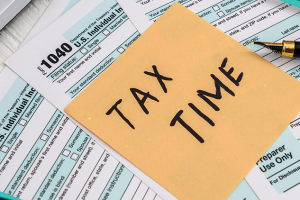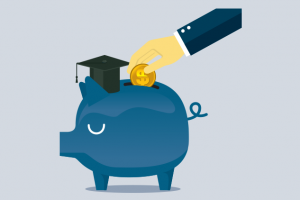When you practice budgeting, you get to be in charge of exactly where your money goes. Sometimes, we can forget the true value of every dollar—that each one was earned with a specific amount of our time. When we see our paycheck come in, we feel flush with opportunity and we can lose sight of all that time we worked to earn it. Remind yourself how much work went into each dollar. Do you want to waste precious time by spending those dollars wherever your impulses take them?
This is just one of the many important reasons to keep a budget. Here are a few others:
- It lets you keep your eyes on the prize.
- It ensures you don’t spend money you don’t have.
- It leads to a happier retirement.
- It helps you prepare for emergencies.
- It sheds light on bad spending habits.
- It’s better than counting sheep at night.
As we learned in the last Focus on Your Money webinar*, we have to know the full scope of our financial situation in order to change it. Hope is simply not a strategy. You’ll have to take a more realistic look at your money before you can gain control over it. Luckily, we’re here to help.
Essential Steps to Budgeting
It may seem overwhelming at first, but by following the steps below, you’ll see that budgeting is actually quite simple—it’s just a habit that you need to form. Before you begin, set a financial goal to look forward to, like a dream home, a place to retire, or an exciting vacation in Europe. These goals will help you stay focused and make budgeting a little easier.
Know your income
The money you take home will become your budgeting baseline. The catch? You can’t build your budget on your salary alone—you’ll have to build it on your net income. Deduct your income tax and set it in your savings account before you pay yourself. Then, you can use the amount that’s left over to start your budget.
Determine your basic expenses
Count up the bills that have fixed payment amounts, such as your mortgage, your car, your insurance, or your student loans. This is also a good time to set up your emergency fund—pick a number to save monthly and factor that into this category.
Determine your variable expenses
Variable expenses are those that will change from month-to-month. These are your phone bill, your groceries, meals at restaurants, and entertainment—all things you have control over.
Prioritize
Now that you know your expenses, determine what’s really important to you. We all tend to think we won’t be able to live without the latest iPhone, but gadgets like this fall in the “Like to Have” column instead of the “Necessity” column. Be ready to make tough choices: do you really need unlimited texting? Do you really need 400 channels? You’ll have to take an unsparing look at your lifestyle to figure out what’s truly necessary and what is a luxury.
Follow your spending and review it monthly
Keep an eye on your spending—especially credit cards—and watch out for small things that quickly add up. It’s easy to cave on these minor expenses from day-to-day, so stay diligent!
 Keep track
Keep track
Find the best way to keep track of your expenses and income. You can use pen and paper or your favorite mobile app if you prefer, but luckily, Maria Riofrio of the LiSA Initiative has made a budgeting spreadsheet that will do most of the heavy lifting for you.
FFS Monthly Budget Tracker
Customized just for you, this spreadsheet is built with specific formulas that will automatically do all the math your budget needs. To begin, put your projected income and expenses into the left-most column. This will anticipate every dollar coming in and out of your budget each month. You’ll find your fixed expenses are coded in green, the flexible expenses are blue, and the intermittent expenses are represented by yellow.
After you’ve projected your expenses for the month, you can start tracking what you’re making week-to-week and stay on track by adjusting accordingly. Place your income in the top row (remember to save your taxes first and only use net income), and the sum total will automatically populate in the upper right-hand corner of the sheet. Your weekly expenses will also populate just below your total income as you go along. The difference between the two will then be calculated to show you the money you have left as the month goes on.
Start budgeting today with our LiSA Budgeting Sheet.
The Ten Best Ways to Save Money
Soon, you’ll be able to see which habits you need to change to have more money every month. The best way to positively affect your budget is to lower your expenses and increase your income. For this, an irregular income can actually be a good thing—when you need more income, you can simply go out and do more business.
If you have a normal 9-to-5, you’ll have to focus more on cutting down your expenses, as there’s not much you can do to raise your income outside of getting a promotion or a new job. Here are the best ways to cut your expenses and save money:
1. Eliminate debt
Interest and annual fees are wasting your hard-earned dollars. In later webinars, we’ll give you more specific advice on how to eliminate debt; until then, pay off as much as you can every month to get interest rates to stop draining your income.
2. Set goals for saving
Visualize your goals—what are you saving for? Is it security for your children, a nice retirement, or better vacations? Establishing these goals can make it easier to walk away from frivolous or impulsive purchases in the future.
3. Pay yourself first
It seems like we’re always taking care of everyone else’s needs—spouses, children, or parents—but financially, you should always put on your oxygen mask first. Set aside your taxes, then pay yourself before giving money to anybody else.
4. Stop smoking
Taking care of your health is important in and of itself, but smoking is particularly bad for your finances as well. Every pack drains your budget, not to mention adding healthcare fees and illnesses that take you away from work. Take care of your body and it will help your wallet too.
5. Take a “staycation” instead
Never go into debt to take a vacation you can’t afford. Make memories at home instead. Your child will remember who taught him to ride a bike much more than who bought the bike.
6. Spend to save
Sometimes, buying higher-quality goods can be more cost-effective—you want to buy things that will last longer than the cheap stuff. Do your research, and you can stretch your dollars in ways you never thought possible.
7. Save on utilities
There are simple things you could be doing to save on your utility bills. It might be sealing your windows and door, it might be lowering your thermostat or water heater by 10 degrees (that alone can save you up to 30%). Get an energy audit from your utility company to see what measures you can take to improve your home.
8. Pack your lunch
Did you know Americans spend an average of $12 eating out every day? Compare this with the $2 spent when packing a lunch, and bringing a sandwich feels like a no-brainer. Plus, it’s healthier for you—calories in restaurant food are doubled when compared to making the same dishes at home.
9. Create an interest-bearing account
Make interest work for you instead of against you by putting your money somewhere that generates more money over time. To pick the best interest rate, use the Rule of 72—divide 72 by the account’s interest rate and you’ll know the number of years it will take your investment to double.
10. Annualize your spending
Look at how much your daily expenses will cost you over the whole year. Take your $4 coffee and multiply it by every workday, then multiply that number by 52 weeks. You’ll find that daily coffee is costing you $1,040 a year! This gives you the perspective to help you cut down on unnecessary expenses. Remember—all the little things add up!
Why Money Doesn’t Solve Most Money Problems
Money problems are actually hidden behavioral problems. For example, winning the lottery rarely results in long-term wealth, and big inheritances don’t take long to completely disappear. Getting more money is not necessarily going to solve habitual problems. In fact, Parkinson’s law states that expenditures always rise to meet income; as we earn more, we will spend more. Keeping a budget helps us pinpoint and break these habits.
We may think that knowledge equals power, but, more accurately, knowledge equals potential power. You have to act on that knowledge first. You are entitled to control over your own money, not your credit cards, not fast food, and not your morning coffee. Are you ready to take action? Remember, budgeting isn’t about limiting yourself. It’s about making the things that excite you possible.
Read our other article in the Focus on Your Money series to get tips on saving.
* Webinars are available to current FFS Agents.





